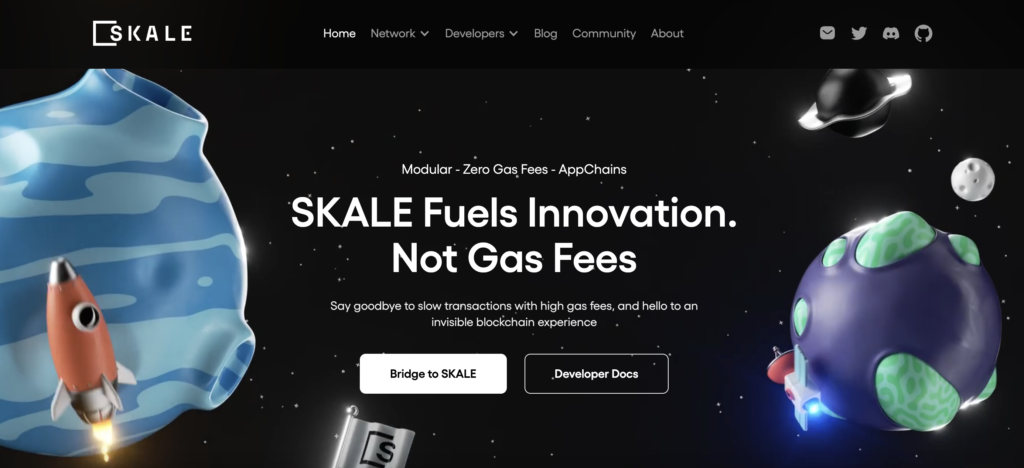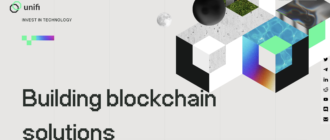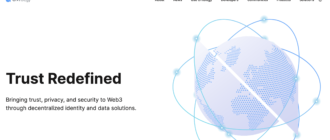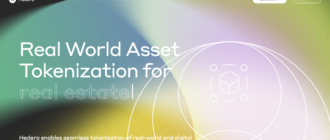In this article, we will delve into the SKALE Network and its native cryptocurrency, SKL. SKALE is a versatile and high-performance blockchain platform designed to enhance the scalability and functionality of decentralized applications (dApps) on Ethereum. The platform boasts innovative features such as zero gas fees, modular blockchain infrastructure, and interoperability with Ethereum, making it a promising solution for various blockchain applications. This comprehensive exploration will cover the project’s history, technological framework, tokenomics, ecosystem, growth prospects, and future outlook.

What is SKALE?
SKALE is an innovative, decentralized elastic blockchain network designed to enhance the scalability and performance of decentralized applications (dApps) on Ethereum. Utilizing a multi-chain architecture, SKALE allows developers to create and deploy independent blockchains that are fully compatible with Ethereum, offering a high-throughput, low-latency environment for dApps. A key feature of SKALE is its zero-gas fee model, which significantly reduces transaction costs and improves user experience. This is achieved through a subscription-based model where developers stake SKL tokens to access the network’s resources, including computation, storage, and security, thereby eliminating the need for end-users to pay transaction fees. By providing scalable and efficient infrastructure, SKALE addresses critical issues related to blockchain scalability and high transaction costs, making it a robust platform for deploying high-performance dApps.
Project History
SKALE was established with the goal of creating a scalable solution for Ethereum-based dApps. The project’s journey began with the launch of its first testnet in 2018, followed by the rollout of its mainnet in three phases starting in June 2020. These phases were designed to progressively introduce features and ensure the stability and security of the network. In 2022, SKALE introduced SKALE V2, which enhanced interoperability among SKALE chains and further optimized the network for decentralized gaming and other applications. A significant milestone was the announcement of a $100 million ecosystem fund aimed at fostering development within the SKALE ecosystem. By June 2023, the network had expanded to include over 20 interconnected blockchains. SKALE continues to innovate, integrating zero-knowledge (zk) scaling solutions to enhance the performance and security of its network, positioning itself as a leading blockchain platform for scalable, gas-free dApp deployment.
How SKALE Works
The SKALE Network is a decentralized elastic blockchain network designed to significantly improve the scalability and performance of decentralized applications (dApps) on Ethereum. This is achieved through several innovative technologies and design choices, each playing a critical role in the network’s functionality.
Core Technologies
SKALE employs a unique architecture comprising multiple SKALE chains, each of which can be independently customized to serve specific applications. This modular approach allows for high throughput and low latency, with each chain capable of handling a substantial number of transactions per second (TPS).
A standout feature of SKALE is its zero-gas fee model. Unlike many other blockchain networks where users pay transaction fees, SKALE utilizes a subscription-based model where developers stake SKL tokens to access network resources. This eliminates transaction costs for end-users and removes a significant barrier to adoption.
Consensus Mechanism
The SKALE Network operates on a modified Proof-of-Stake (PoS) consensus mechanism, utilizing the Asynchronous Binary Byzantine Agreement (ABBA) protocol. This consensus model provides several advantages:
- Pooled Security: Validators are randomly selected and rotated frequently, which enhances security and prevents collusion. This ensures that each transaction is validated by a decentralized and dynamic set of nodes.
- Virtualized Subnodes: SKALE chains leverage virtualized subnodes that allow each physical node to participate in multiple chains simultaneously. This containerized approach ensures high performance and flexibility, similar to traditional cloud services.
- BLS Threshold Signatures: For interchain messaging, SKALE uses Boneh–Lynn–Shacham (BLS) threshold signatures, enabling efficient and secure communication between different chains and the Ethereum mainnet. This is crucial for maintaining interoperability and ensuring seamless token and message transfers.
Blockchain Infrastructure
Each SKALE chain is EVM-compatible, meaning it can run any Ethereum smart contract without modification. This compatibility simplifies the migration of dApps from Ethereum to SKALE, leveraging SKALE’s enhanced performance and cost-efficiency.
The SKALE Manager, a suite of over 35 smart contracts deployed on the Ethereum mainnet, orchestrates various network functions such as chain creation, validator registration, staking, and node rotation. This decentralized management ensures robust and transparent network operations.
Technical Advantages
- Zero Gas Fees: The network’s zero-gas fee structure is a significant differentiator, made possible by its subscription model. This model not only lowers operational costs but also facilitates higher user engagement by removing transaction fees.
- Instant Finality: Transactions on SKALE achieve instant finality, meaning they are processed and confirmed immediately, offering a smoother user experience compared to other blockchains with longer confirmation times.
- High Throughput: SKALE’s infrastructure supports high transaction throughput, with each chain capable of processing up to 700 TPS under peak conditions. This scalability is further enhanced by the network’s ability to add new nodes as needed, ensuring that performance scales linearly with demand.
- On-Chain Storage: SKALE nodes provide native on-chain storage, enabling dApps to store static content like videos, files, and photos directly on the blockchain. This feature supports a wide range of applications, from gaming to decentralized finance (DeFi).
In summary, the SKALE Network’s advanced technological framework and unique features make it a powerful platform for developing scalable, efficient, and cost-effective decentralized applications, setting it apart from other blockchain networks.
Tokenomics of SKALE
The SKALE Network utilizes the SKL token, which is an ERC-777 standard token built on Ethereum. Unlike coins, which operate on their own blockchain, SKL is a token that functions within the SKALE ecosystem and leverages the Ethereum network for various functionalities.
Token Purpose and Utility
SKL serves multiple roles within the SKALE ecosystem:
- Staking and Validation: SKL is used by validators to secure the network. Validators stake SKL tokens to earn the right to validate transactions and operate nodes. In return, they receive rewards in SKL, which are distributed based on their performance and contribution to network security.
- Delegation: Token holders who do not wish to run nodes themselves can delegate their SKL tokens to validators. This delegation allows them to earn a share of the staking rewards without directly participating in the validation process.
- Developer Subscription Fees: Developers use SKL to pay for resources such as computation, storage, and bandwidth by renting SKALE chains. This subscription-based model eliminates gas fees for end-users, making it more economical to deploy and operate dApps on the SKALE Network.
- Governance: SKL token holders can participate in the governance of the SKALE Network. They can submit and vote on proposals that influence network operations, such as changes to staking parameters, fee structures, and other key aspects of network management.
Emission Model
The maximum supply of SKL is capped at 7 billion tokens. At launch, the initial circulating supply was approximately 4.1 billion tokens. The distribution of SKL tokens is designed to incentivize various stakeholders in the network:
- Validator Rewards: 33% of the total supply is allocated for rewarding validators.
- Delegator Allocation: 28.1% is set aside for early supporters and public allocations.
- Founding Team: 16% is allocated to the founding team.
- SKALE Foundation: 10% is reserved for the SKALE Foundation to support ongoing development and network operations.
- Protocol Development Fund: 7.7% is dedicated to the protocol development fund.
- Core Team Pool: 4% is reserved for the core team.
- Ecosystem Fund: 1.3% is allocated to the ecosystem fund to support community and ecosystem initiatives.
Token Distribution and Unlock Schedule
Tokens distributed to early supporters and the founding team are subject to lock-up periods to ensure network stability and alignment of incentives. These tokens are gradually unlocked according to a predefined schedule, promoting long-term commitment to the network’s growth and health.
Price and Market Performance
As of the latest data, the price of SKL fluctuates based on market conditions, network activity, and broader cryptocurrency market trends. At launch, the public sale price of SKL was $0.03. The token has since experienced various market dynamics, reflecting its adoption and the development progress of the SKALE Network.
Key Features and Advantages
- Zero Gas Fees: By shifting the cost burden to developers via a subscription model, SKALE eliminates transaction fees for end-users, enhancing user experience and reducing barriers to entry.
- High Throughput: SKALE chains can process up to 700 transactions per second (TPS) per chain, significantly improving the scalability of Ethereum-based applications.
- Interoperability: SKALE’s interoperability with Ethereum ensures seamless integration and communication between SKALE chains and the Ethereum mainnet, facilitated by interchain messaging protocols and BLS threshold signatures.
- Decentralized Governance: SKL token holders actively participate in the governance of the network, ensuring that the development and operational decisions align with the community’s interests.
In summary, the SKL token is a versatile and essential component of the SKALE Network, driving its security, scalability, and governance while providing economic incentives for validators, developers, and token holders.
Where to Buy SKL Token
The SKL token, native to the SKALE Network, is available on several prominent cryptocurrency exchanges. Here is a list of exchanges where you can buy SKL:
- Binance: One of the largest and most popular cryptocurrency exchanges globally, Binance offers extensive trading pairs and high liquidity for SKL tokens.
- HTX (formerly Huobi): A major exchange known for its robust security measures and wide range of supported cryptocurrencies, including SKL.
- MEXC: A rapidly growing exchange that supports a variety of cryptocurrencies and provides users with advanced trading features.
- Gate.io: Known for its user-friendly interface and high-performance trading engine, Gate.io supports SKL and offers competitive trading fees.
- KuCoin: This exchange is popular for its diverse range of cryptocurrencies, ease of use, and strong community support, making it a good platform for purchasing SKL tokens.
Steps to Buy SKL on These Exchanges:
- Register: Create an account on the exchange if you don’t already have one.
- Verify: Complete any required KYC (Know Your Customer) verification process.
- Deposit Funds: Deposit fiat or cryptocurrency into your exchange wallet.
- Buy SKL: Navigate to the SKL trading pair (e.g., SKL/USDT) and place your order.
Where to Store SKL Token
Storing your SKL tokens securely is crucial. Here are some recommended wallets that support the SKL token:
Hardware Wallets
- Ledger: Ledger hardware wallets (Ledger Nano S and Ledger Nano X) provide top-tier security by keeping your SKL tokens offline.
- Trezor: Trezor hardware wallets also offer robust security features and support for SKL, ensuring your tokens are safe from online threats.
Software Wallets
- MetaMask: A popular Ethereum wallet that supports ERC-20 and ERC-777 tokens, including SKL. It is available as a browser extension and mobile app, providing easy access and user-friendly management.
- Trust Wallet: This mobile wallet supports a wide range of cryptocurrencies, including SKL. Trust Wallet offers a simple interface and integrates with decentralized applications (dApps).
- Atomic Wallet: A multi-currency wallet that supports SKL and provides features like atomic swaps and staking, available on both desktop and mobile platforms.
- MyEtherWallet (MEW): An open-source Ethereum wallet that allows users to manage ERC-20 and ERC-777 tokens, including SKL. MEW offers both web and mobile versions.
Choosing the Right Wallet
- Security: For long-term storage, hardware wallets like Ledger and Trezor are recommended due to their offline security features.
- Convenience: For daily transactions and easy access, software wallets like MetaMask and Trust Wallet are excellent choices.
- Advanced Features: If you require additional functionalities like staking or integration with dApps, wallets like Atomic Wallet and MyEtherWallet are suitable options.
By choosing the appropriate exchange for purchasing SKL and a secure wallet for storing it, you can effectively manage your SKL tokens and participate in the SKALE Network ecosystem.
Future Prospects of SKALE
Growth Foundations
The SKALE Network’s growth is driven by its innovative technology and strategic partnerships. The network’s unique architecture, which offers zero gas fees and high transaction throughput, positions it as a leading solution for scalable blockchain applications. SKALE’s development is supported by significant investments and an active community of developers and users, contributing to its continuous expansion.
Clients and Partners:
- BigBallerBrand Family: Partnered with SKALE through the game Strayshot.
- Hurley: Launched the Super Surfer game on SKALE.
- MotoDex: A leading game on SKALE, showcasing the platform’s capabilities for gaming.
- Exorde and Overlai: AI applications leveraging SKALE’s zero gas fees and scalability.
- Other notable partners: Ballers City, Bionic Owls, BitHotel, Dirac.Finance, and many more.
Prognosis for Development:
SKALE’s focus on reducing transaction costs and increasing speed positions it well for future growth, particularly in areas like gaming, decentralized finance (DeFi), and AI. The network’s recent milestones, including hitting over 200 million transactions and saving users billions in gas fees, highlight its potential for continued expansion. The integration of zero-knowledge (ZK) solutions and other technological advancements further enhances SKALE’s appeal to developers seeking efficient and scalable blockchain solutions.
Ecosystem
The SKALE ecosystem is diverse, encompassing a wide range of applications and projects. This includes decentralized applications (dApps) across various sectors such as gaming, DeFi, AI, and more. The ecosystem is supported by a robust infrastructure that ensures seamless interoperability and high performance.
Key Components:
Gaming:
- MotoDex: Leading game on SKALE with millions of transactions.
- Katana Inu: A multiplayer PC game under development.
- Life Games: A platform for skill-based PvP games.
AI Applications:
- Exorde: Uses SKALE for machine learning and data processing.
- Chirper.ai: An AI-driven social network.
DeFi Platforms:
- Dirac.Finance: A DeFi protocol leveraging SKALE’s fast transactions and security.
Other Notable Projects:
- DexGo: An augmented reality walk-to-earn game.
- Pixudi: A blockchain-based chess game.
SKALE’s strategic focus on enhancing scalability, reducing costs, and fostering a vibrant ecosystem positions it for substantial growth in the coming years. The network’s partnerships with prominent brands and its expanding user base underscore its potential to become a dominant player in the blockchain industry. With ongoing technological advancements and a strong community, SKALE is well-equipped to support the next generation of decentralized applications.
Conclusion
The SKALE Network represents a significant advancement in blockchain technology, particularly for developers and users seeking efficient, scalable, and cost-effective solutions. With its unique approach to eliminating gas fees and providing a robust infrastructure for dApps, SKALE is positioned to play a crucial role in the future of decentralized applications and blockchain innovation. As the platform continues to evolve and integrate new technologies, it will be interesting to see how it shapes the landscape of blockchain development and adoption.






